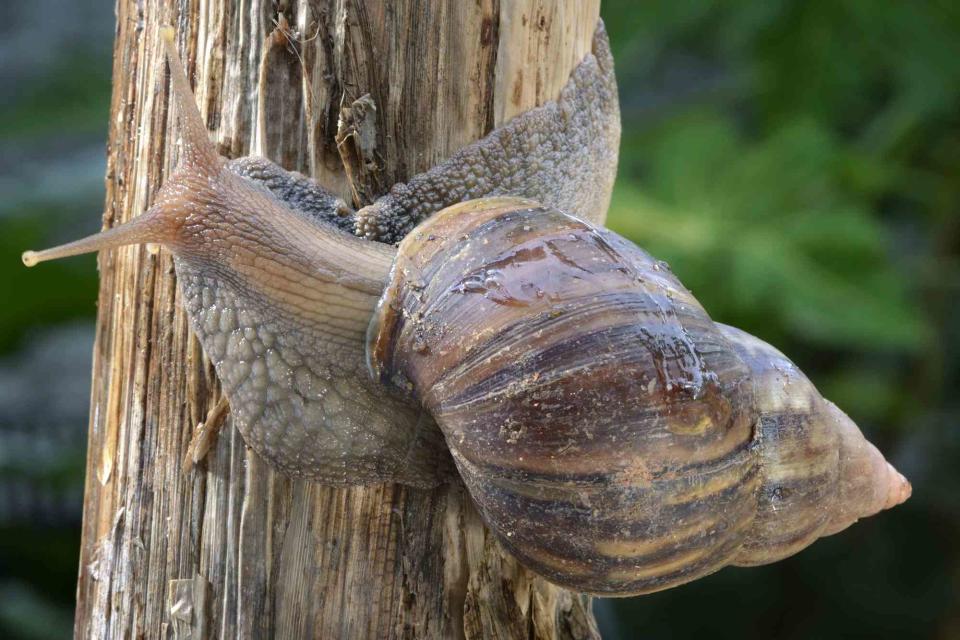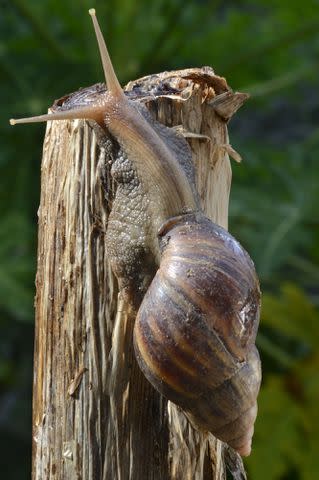Florida County Quarantined After One of the World's 'Most Damaging Snails' Is Found in Area
Florida Department of Agriculture and Consumer Services enacted the quarantine to stop the spread of the snail species, which poses environmental and health threats

FLPA/Shutterstock
A portion of a South Florida county was placed under quarantine while officials reacted to a recent giant African land snail sighting.
The quarantine took effect on Tuesday in Broward County. The quarantine states that without a compliance agreement, those located in the over three-mile quarantine boundaries cannot move any giant African land snails, plants, plant parts, plants in soil, soil, yard waste, debris, compost, or building materials, according to the Florida Department of Agriculture and Consumer Services (FDACS).
These restrictions come after the FDACS confirmed the detection of a giant African land snail in the Miramar area of Broward County on June 2. The quarantine will remain active until officials treat the area with Metaldehyde, a pesticide that disrupts the mucus production ability of snails and slugs — making them susceptible to dehydration. The U.S. Environmental Protection Agency (U.S. EPA) has concluded that Metaldehyde, when used as directed, is unlikely to affect human health.
Scientists consider the giant African land snail, which can grow as long as 8 inches, to be "one of the most damaging snails in the world," primarily because of the species' threat to vegetation and property. The mollusk subtype is known to consume at least 500 different species of economically important agricultural plants and, in addition, feeds on paint and stucco to harvest calcium for their shells.
Beyond property damage, the massive snails can also carry rat lungworm, a parasite that causes eosinophilic meningitis in humans and livestock.

FLPA/Shutterstock
A giant African land snail moving up piece of wood
Last summer, officials enacted a similar quarantine in Pasco County, which sits about half an hour north of Tampa, after the county's Master Gardener reported seeing the invasive mollusk in Port Richey. This quarantine comes almost a year after the Animal and Plant Health Inspection Service (APHIS) declared the giant African land snail eradicated in Florida in 2021. The only other time the state declared the snail eradicated was in 1975.
The giant snails, which can produce up to 2,500 eggs per year, are notoriously challenging to eradicate completely, as they procreate in staggering amounts.
In a 2022 interview with CNN, Christina Chitty, a public information director at the FDACS, said that the snails first arrived in Florida, most likely through the illegal pet trade.
For more People news, make sure to sign up for our newsletter!
Read the original article on People.

